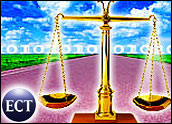
Part 1 of this two-part series describes the e-commerce tax landscape and delves into the reasons all players are not equal.
Many local governments have initiated class action lawsuits in an effort to compel the collection of sales taxes on hotel room markups.
Online travel companies, or OTCs, have responded to these cases along three main lines of defense. The first is procedural. They are arguing that these preemptive legal actions should be dismissed because the taxing authorities have not adhered to the administrative procedures that are supposed to be followed when assessing back taxes: an audit, an audit review, and an internal administrative challenge to the audit results.
The OTCs are arguing that the taxing authorities have not exhausted their administrative remedies. A taxpayer has an obligation to exhaust administrative remedies prior to filing a legal action in the courts. If a taxpayer fails to exhaust administrative remedies, the tax authority can (and will) have the legal action dismissed. In this case, it is the OTCs who have turned the table on the tax authorities, seeking to have these legal actions dismissed because the tax authorities have failed to follow their own procedures. Governmental entities have cried foul, saying that the OTCs are bringing this procedural challenge only as a delaying tactic.
The OTCs have enjoyed some initial successes. Cases brought against OTCs by Nassau County in New York and the City of Oakland were dismissed in 2007 for failure to exhaust administrative remedies. However, the tide might be turning on this argument. An appeals court in Florida held that Orange County, Florida — home to Disney World — did not have to exhaust its administrative remedies before suing the OTCs. A case brought by the City of Atlanta was initially dismissed for this same reason, but in March of this year, the Georgia Supreme Court reversed the decision, holding that Atlanta was not required to exhaust its administrative remedies.
Discrimination Against E-Commerce
The OTCs’ primary substantive defense is that they are not required to collect hotel room taxes because they do not own or manage hotels. Rather, their position is that they are being paid a fee for a service they provide rather than for providing a hotel room. This argument was successful in a class action case brought by North Carolina. The decision, which was affirmed by the 4th Circuit Court of Appeals, was based on the wording of the statute that imposes the tax on operators of hotels. The court ruled that the OTCs did not operate hotels. However, the OTCs still have a major challenge in several other jurisdictions, where the statutes are worded more broadly. For now, they continue to fight on, and we will track outcomes on a state-by-state basis as these cases make their way through the courts.
The Internet Tax Freedom Act is a federal law that prohibits a state or political subdivision from imposing a discriminatory tax on electronic commerce. The OTCs are arguing that the service they provide is the same type of service that has been provided by traditional hotel room aggregators, which have been operating for decades prior to the Internet revolution. The OTCs are saying that tax authorities have not previously sought to impose hotel room taxes on traditional hotel room aggregators that have not based their business model on an e-commerce platform.
The OTCs say that they are able to provide the same service as traditional hotel room aggregators through the means of using electronic commerce by utilizing the Internet to provide the same service. They claim that because the tax authorities have not pursued traditional hotel room aggregators for hotel room taxes on their markup, the tax authorities are prohibited from imposing tax on the OTCs; their bias against the OTCs would represent a discriminatory tax against e-commerce.
As of the writing of this article, there have not yet been any appellate court decisions on the application of this nondiscrimination provision of Internet Tax Freedom in the e-commerce arena, other than in the context of telecommunication taxes. It is therefore not certain how the courts will deal with this argument when it comes to hotel room taxes.
What the Future May Bring
Several different factors could have an impact on the outcome of these cases.
First, it is possible that state and local governments will change their statutes to make it clear that their hotel room tax can be imposed on the service provided by an OTC. A Florida Senate Committee Report in 2004 recommended this course of action, but such an amendment has not been adopted. Other state legislatures may also be balking at similar changes to their statutes, possibly due to the influence of the travel industry.
If an OTC were required to collect room taxes on the amount of its markup, then the entire world would know the amount of the mark-up, and that would give competitors, as well as consumers, a major advantage when negotiating room rates. In normal times, this type of industry pressure would likely be enough to prevent any such legislation. However, these are not normal times for state and local governments experiencing record budget deficits, so this might appear more and more likely.
Second, Congress could step in and prohibit state and local taxation of the OTCs’ business under its power to regulate interstate commerce. Conversely, Congress could step in and ratify the rights of state and local governments to collect hotel room taxes from OTCs by amending the Internet Tax Freedom Act to expressly allow it. However, similar efforts to move legislation that would require e-commerce retailers to collect sales tax have gotten nowhere in Congress.
Finally, the OTCs might agree to settlements with taxing authorities, in which the OTCs would agree to collect hotel room taxes on a going-forward basis, and the taxing authority would agree to forgive any past tax liabilities. This is similar to the kind of settlement that several national retailers agreed to in the early years of the e-commerce boom. In the past cases, national retailers like Wal-Mart and Target set up separate e-commerce subsidiaries that were not collecting sales tax, taking the position that the subsidiaries did not have nexus with the state. They agreed in multiple settlements around the country to collect sales tax on a prospective basis, with a forgiveness of any liability for prior sales.
One problem with this scenario in the context of the OTC controversies is, as noted above, many of these cases are being prosecuted by private law firms on a contingent-fee basis. Since we do not know the exact terms of the contingent-fee arrangements with the law firms, we do not know if the cases can be settled without the payment of fees to the law firms for the many hours of time spent on these cases. The governmental entities could always agree to give the law firms a percentage of future tax revenues received from the OTCs, assuming that state laws would allow for such arrangements.
For now, though, there is still a great deal of uncertainty as these cases continue to work their way through the legal system. In the absence of a settlement — or an act of Congress — it appears that we will just have to wait to see the outcome of this epic tax battle.
Marvin Kirsner is a shareholder with the international law firm of Greenberg Traurig, resident in the firm’s Palm Beach County South office. His practice is focused on state and local tax issues including e-commerce and telecommunication taxation.

















































Social Media
See all Social Media